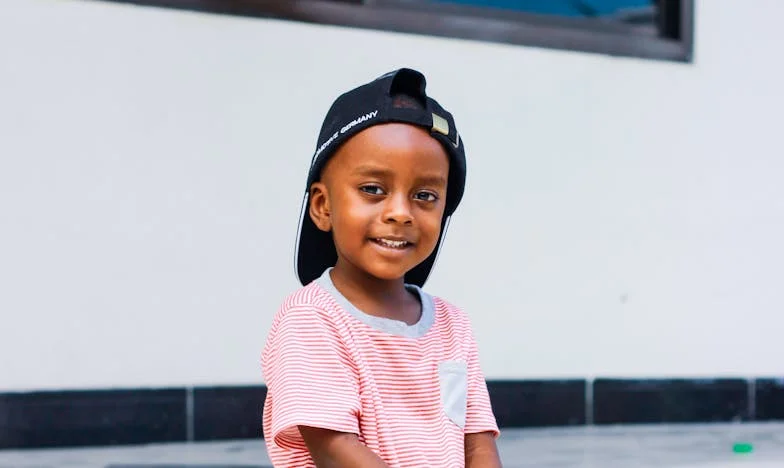Leaving Everything Behind: My New Life in the Old House
“Mom, why are you doing this? Seriously, what are you thinking?” Emily’s voice cracked through the phone, wavering between anger and tears. I could almost see her—standing in the kitchen of the apartment I’d signed over to her and her brother, clutching her coffee mug like a lifeline.
I hesitated, suitcase half-packed on the bed. The scent of lilacs from the open window mingled with the stale city air. “Emily, honey, you and James need that apartment more than I do. I’m… I’m ready for something different.”
She scoffed, “Different? Mom, it’s a hundred-year-old shack in the middle of nowhere. You hate spiders. You hate the cold. What, you want to play Little House on the Prairie now?”
A smile tugged at my lips despite the tightness in my chest. “Maybe I do. Maybe I just need quiet.”
The truth was, for years I’d moved through life on autopilot—work, bills, kids’ school projects, grocery lists, holiday dinners. My ex-husband, Mark, had left when Emily was ten, and it had been just the three of us ever since. I’d given up dreams of painting, of travel, of weekends spent with a book and silence. I never resented my children—never—but my soul had grown tired, heavy with years of putting myself last.
Last winter, after my retirement party—cheap sheet cake and hollow congratulations—I’d stood on the balcony of our cramped Boston apartment, watching snow drift between the buildings. I’d realized I had no idea what I wanted, only what everyone else needed from me. That scared me more than the thought of living alone.
So when my cousin passed away and left me the old farmhouse in Maine, I saw a door crack open. I could give Emily and James stability, and maybe—finally—find out who I was underneath the mothering, the working, the worrying.
Moving day felt like an amputation. Emily tried to hide her red eyes as she helped me load the last box. James hugged me, awkward and stiff, then disappeared back into work calls. The car ride north was quiet—just me, the hum of the tires, and a knot of fear and hope wedged in my throat.
The house was a relic: sagging porch, uneven floors, a kitchen straight out of 1962. The roof leaked, and there was a family of squirrels in the attic. But I felt something here—peace, maybe, or just the possibility of it.
At first, I filled my days with repairs. I learned to patch drywall, fix the old plumbing, and exorcise the attic squirrels (a battle I mostly lost). Nights were hard. The silence pressed in, and the old loneliness came roaring back. I’d stare at the peeling wallpaper, wondering if I’d made a colossal mistake.
One evening, the phone rang. It was Emily.
“Mom, you missed James’ birthday. He was pretty upset.”
Guilt stabbed at me. “I’m sorry, honey. I lost track of the days.”
“Are you okay up there?” she asked, voice small. “Do you… do you even miss us?”
“Oh, Em. I miss you both more than you know. But I need this. I need to remember who I am when I’m not just ‘Mom.’”
There was a long pause. “I don’t get it,” she whispered.
“I know. Maybe someday you will.”
After we hung up, I cried until the sun rose. But the next morning, I woke to birdsong and a shaft of light across my pillow. I made coffee and sat on the porch, watching deer graze at the tree line. For the first time in decades, I felt a flicker of contentment.
As the weeks passed, the town welcomed me in small ways. Mrs. Parker from down the road brought over blueberry muffins. The mailman, Sam, would chat about the weather and local gossip. I joined the library book club, though I was the only newcomer in years. They asked about my family, and I told them—honestly—how hard it had been to put my own needs first.
One rainy afternoon, as I struggled to light the wood stove, I found an old sketchbook in a box from Boston. My hands shook as I flipped through the yellowed pages. I hadn’t drawn in years. That night, I sat by the window, pencil in hand, and sketched the view: the sagging barn, the wild garden, the storm clouds rolling in. It wasn’t perfect, but it was mine.
Months slipped by. I painted, gardened, fixed the porch. Emily’s calls became less frequent, but warmer. Sometimes she asked for advice—about work, about James, even about cooking. I could hear the worry in her voice, but also a grudging respect.
One evening, Emily and James drove up for a visit. They looked around the house, taking in the patched walls, the overflowing garden, the canvases drying by the stove. Emily hugged me tightly. “You look… happy, Mom.”
I laughed. “I think I am.”
James grinned. “You’re a badass, you know that?”
That night, we sat around the creaky old table and played cards by lamplight. For the first time in years, I felt like myself—not just their mother, but Barbara, a woman with her own history and dreams.
Now, as autumn creeps in and the leaves blaze gold outside my window, I think about all the years I spent afraid to choose myself. I wonder if Emily will ever understand why I left, or if she’ll forgive me for needing this space. Did I betray my family by wanting more? Or did I finally teach them something by showing them that it’s never too late to start again?
What would you have done, in my place? Do we ever stop paying the price for putting ourselves first?
